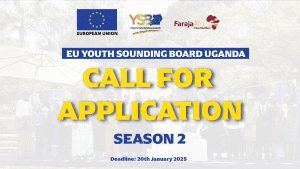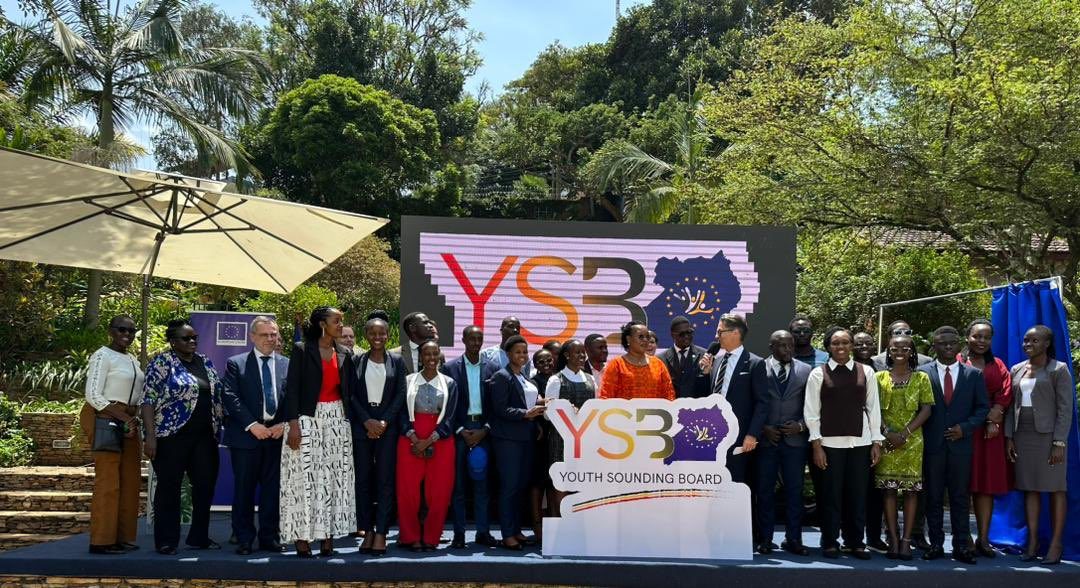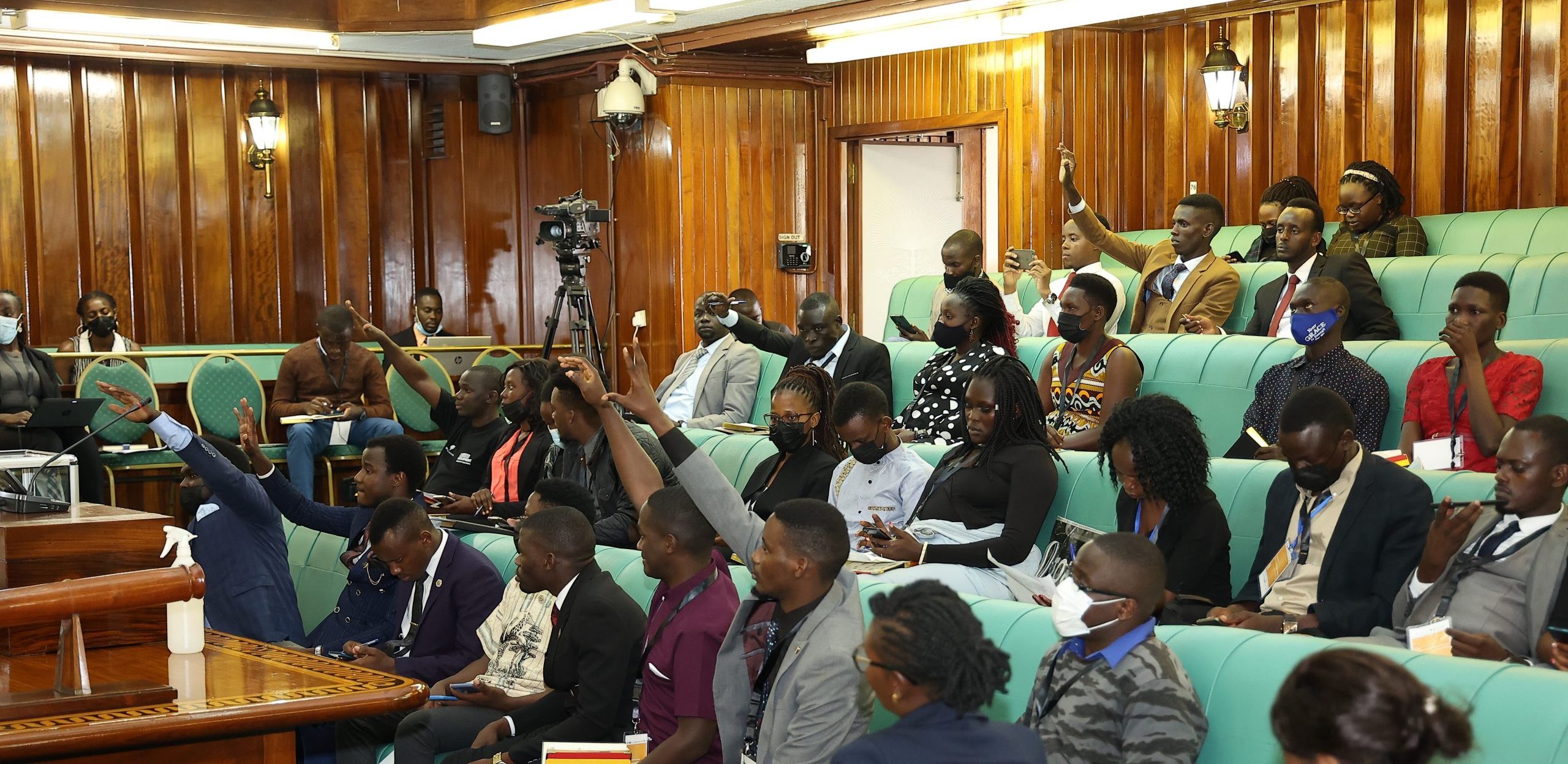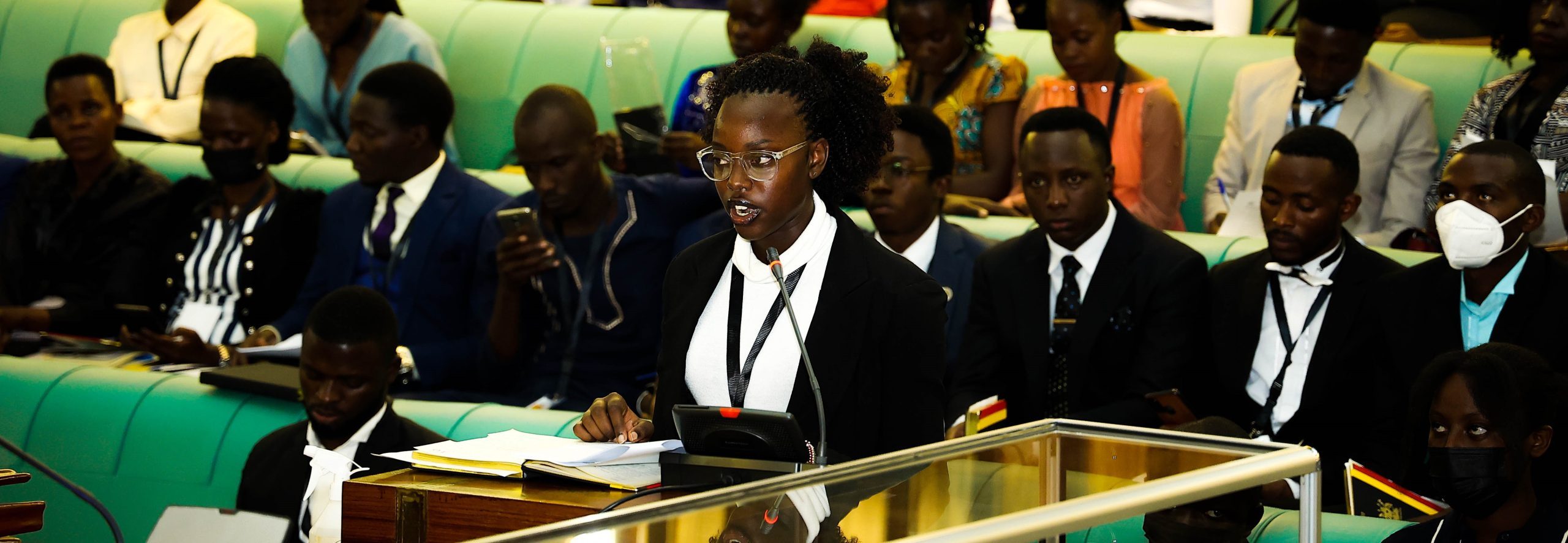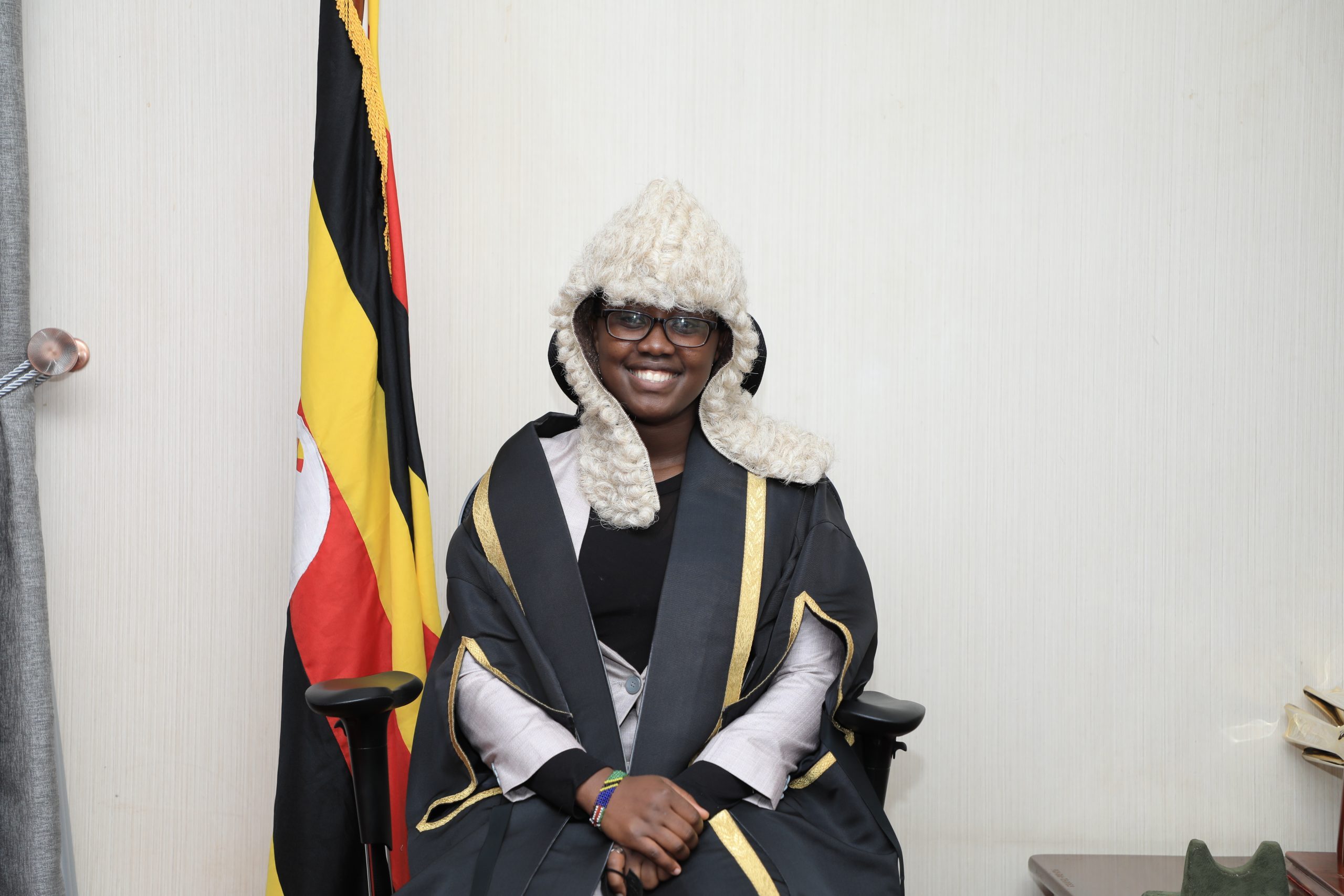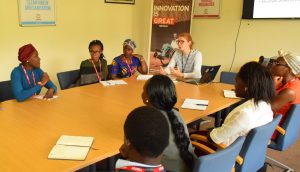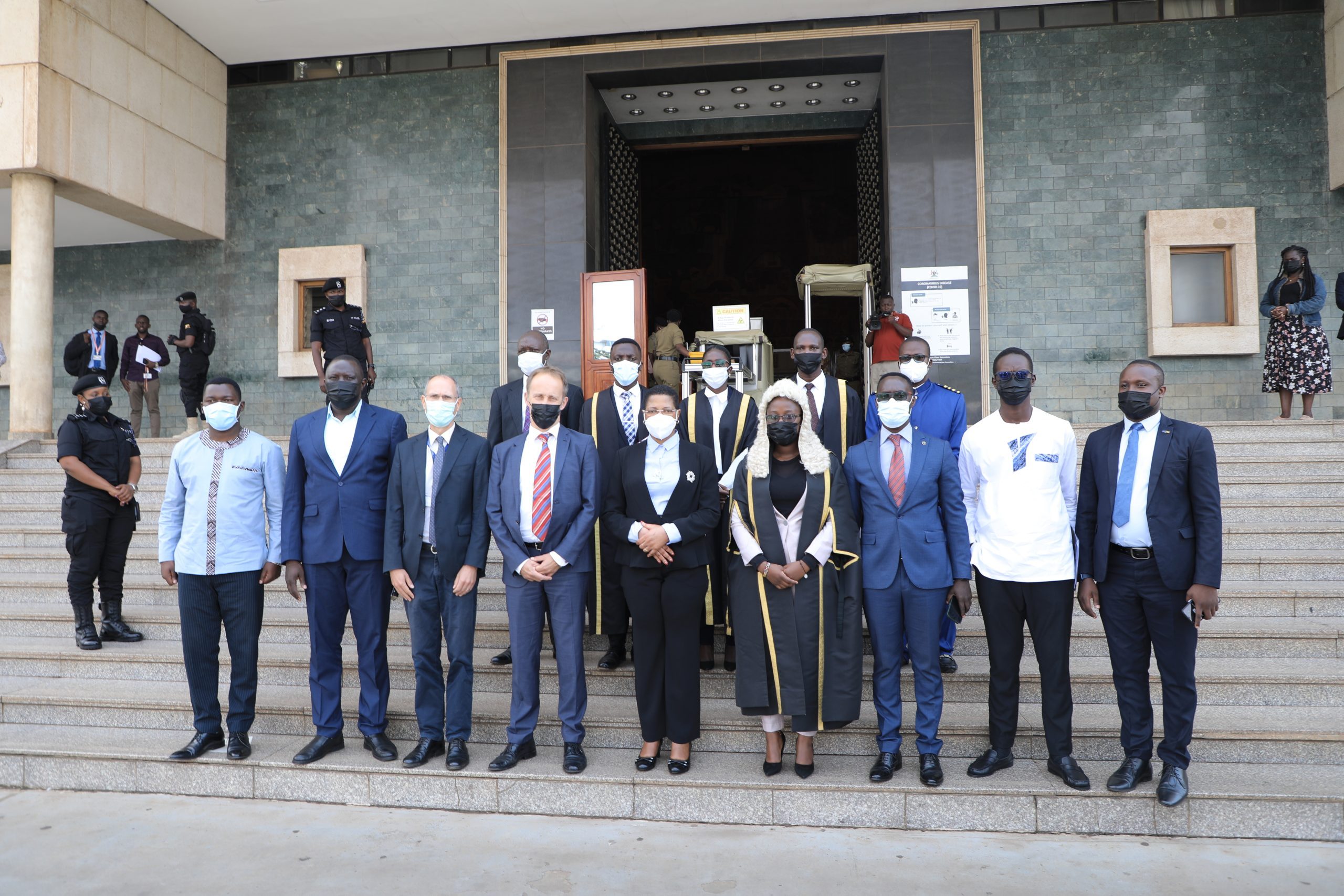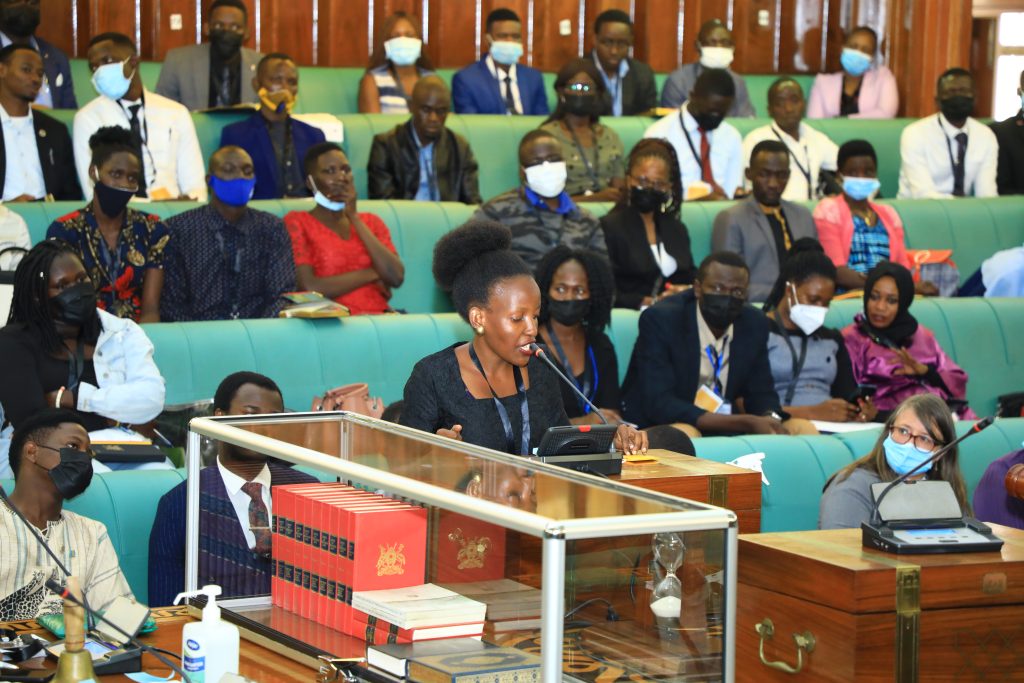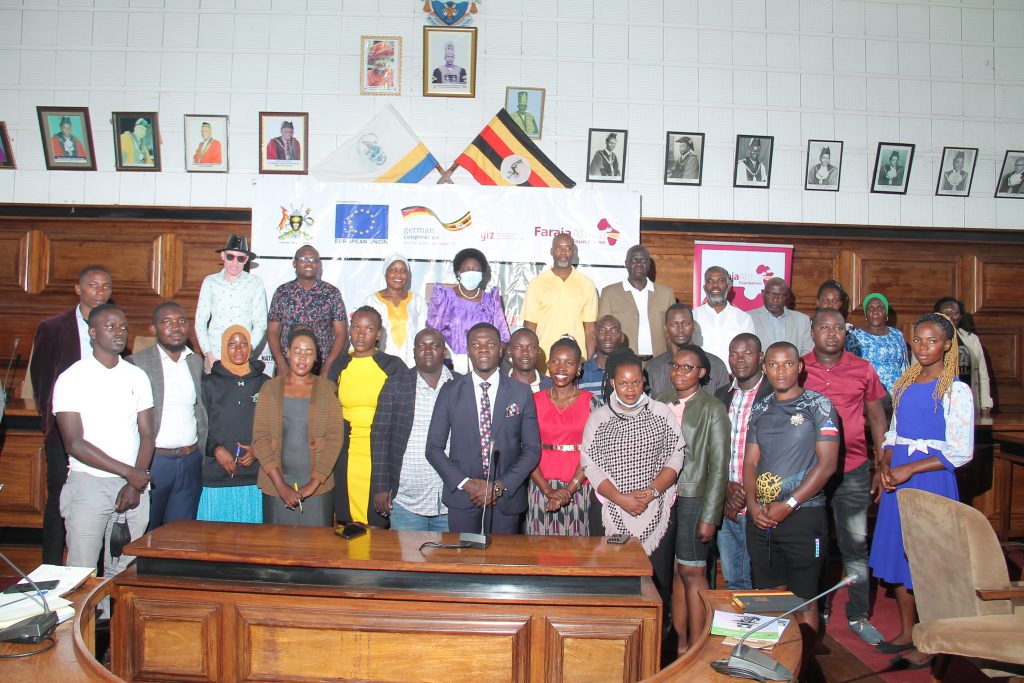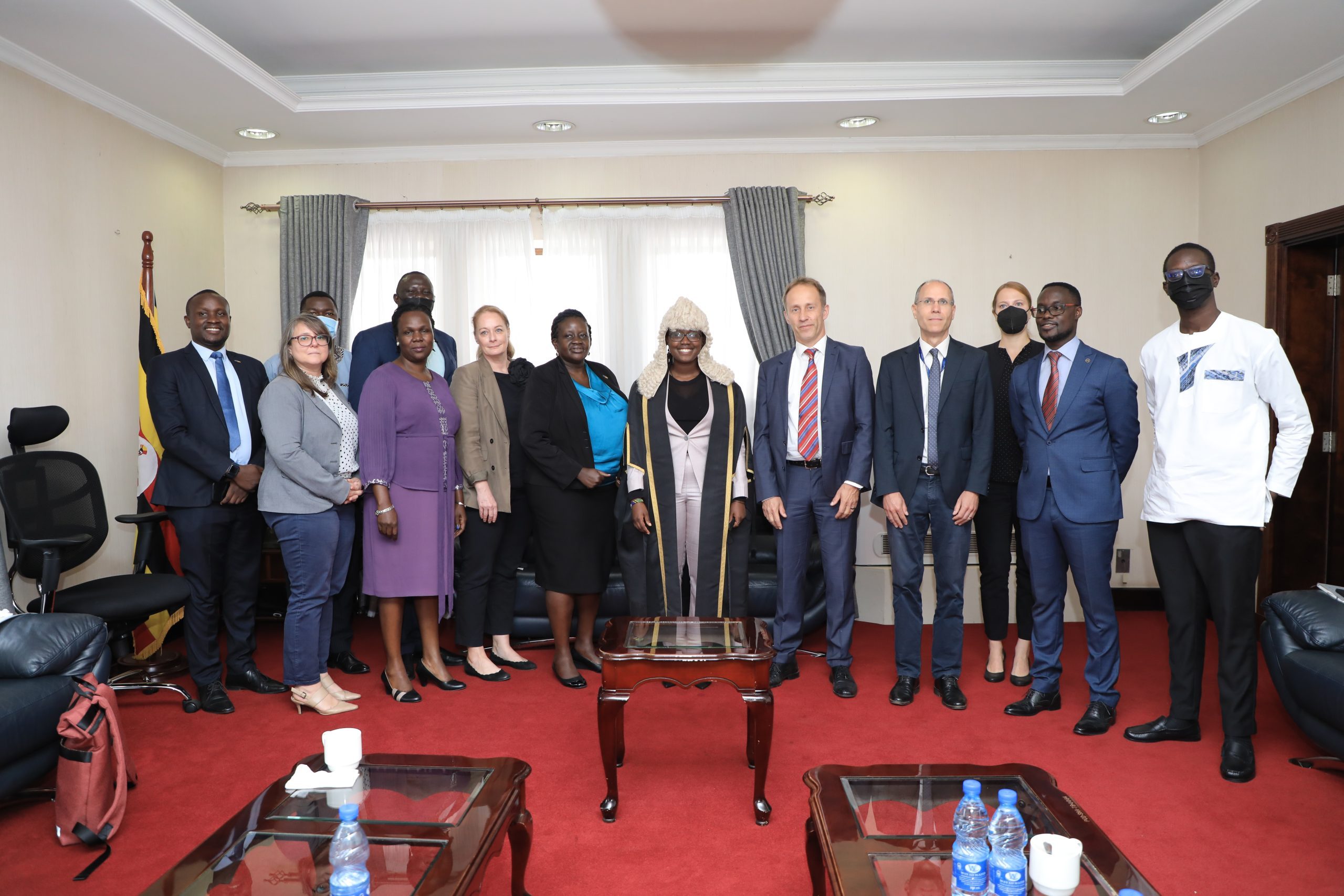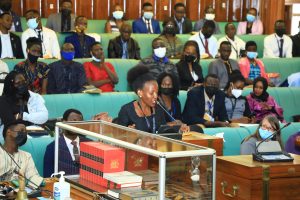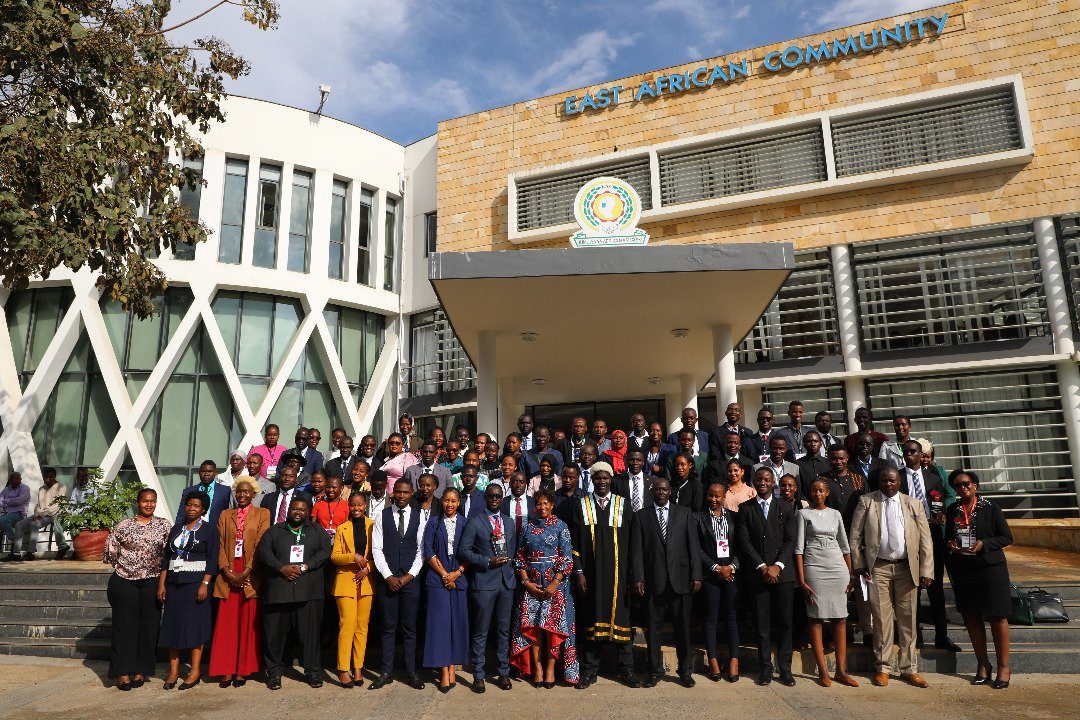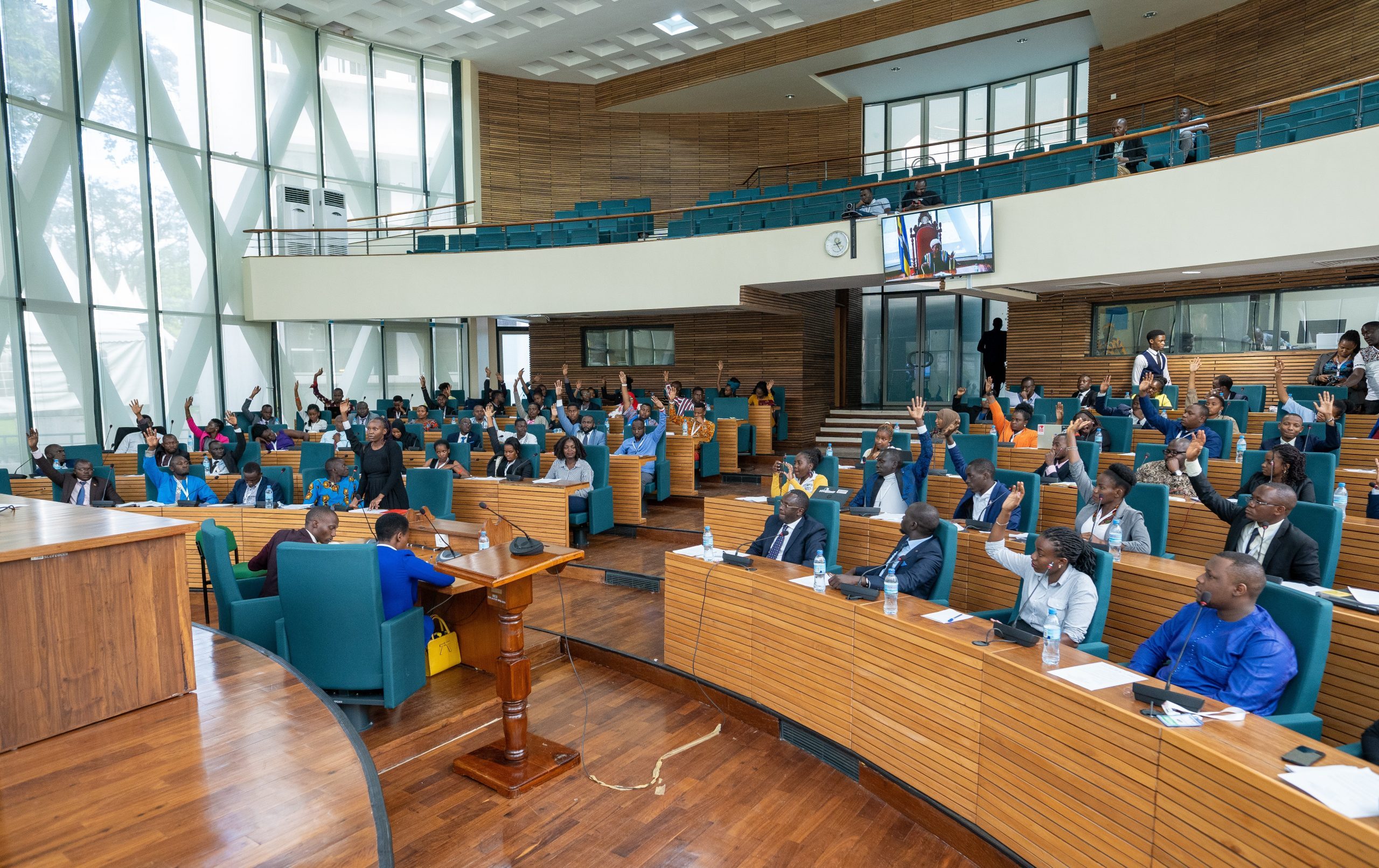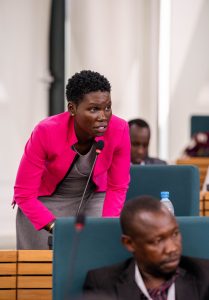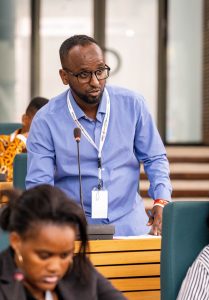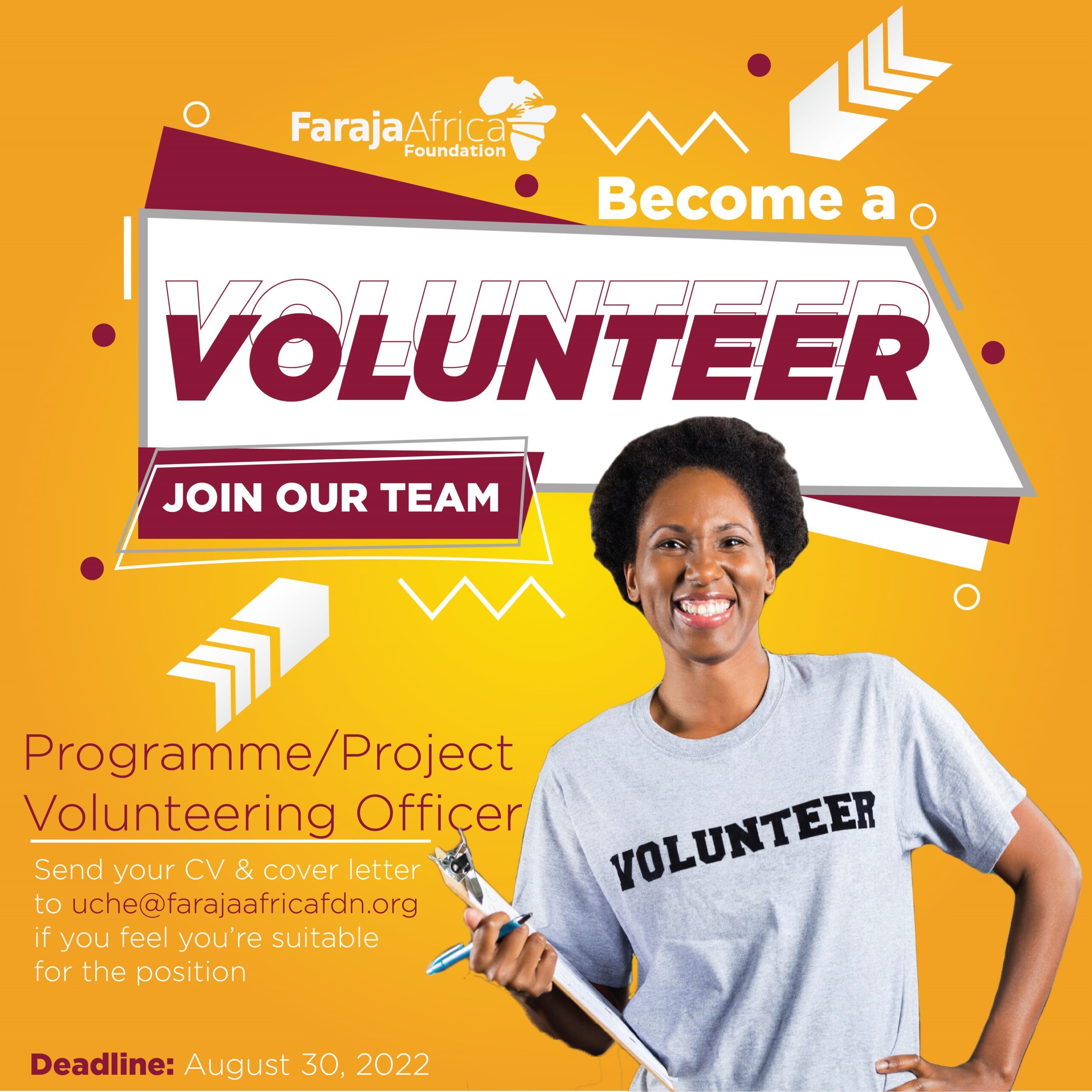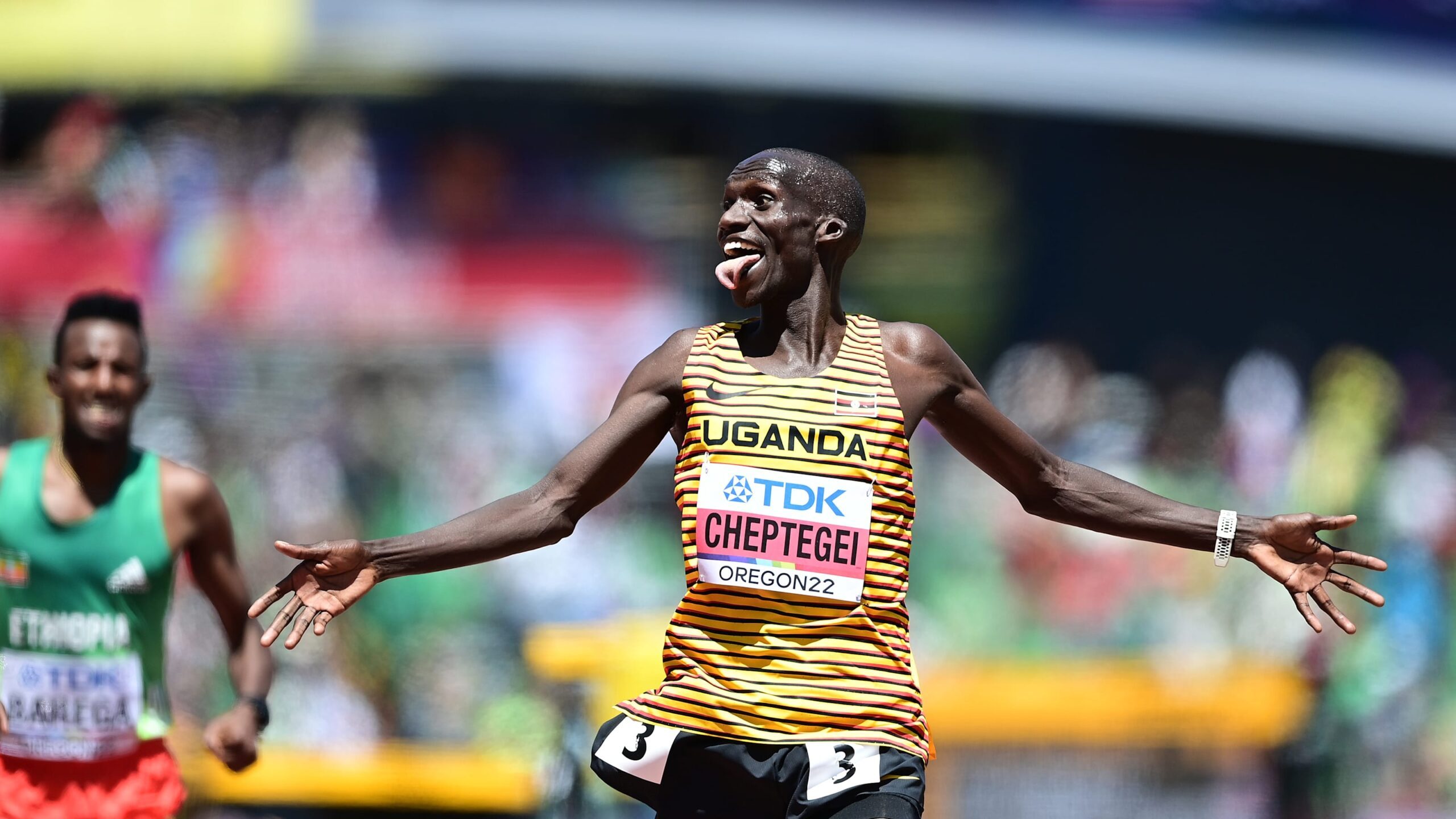The 5th sitting of the East African Community Youth Parliament (Vijana Assembly) facilitated by Faraja Africa Foundation and the East African Legislative Assembly in partnership with Akina mama wa Afrika and partners brought together over 100 youth parliamentarians from Kenya, Tanzania, Uganda, Rwanda, Burundi, DRC and South Sudan to discuss pressing matters including climate-change, sexual and reproductive health and rights, agriculture, violence and conflict resolution, amongst others.
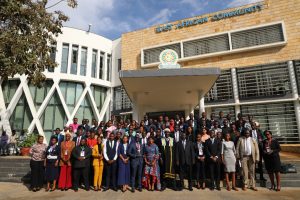
During the sessions, members echoed the urgent need for a harmonized approach to the issue of single-use plastics in East Africa and brought forward a motion urging member states to adopt legislation to curb the impacts that single-use plastics have on our environment, economy, climate and human health across the region.
Single-use plastics and climate change
The plastic industry is responsible for at least 232 million tonnes of planet-warming emissions each year, according to the Beyond Plastics report and their impact doesn’t stop there.
From its production to its end-of-life, plastics pump greenhouse gases at every stage of their life cycle, starting from the fossil fuels extracted underground, to extreme temperatures and excessive amounts of water used to create, transform and mould them.
Once they’re created, they never disappear. They break into small particles – micro-plastics – that have been found everywhere scientists have dared to look: from human breast milk, to the arctic circle and every part of Lake Victoria from the surface level to the lake floor. Besides polluting our environment and choking our biodiversity, plastics release harmful chemicals and greenhouse gases that contribute to the climate emergency.
Waste management, with plastics in particular, has proven to be a huge global challenge considering half of the plastics produced globally are designed to be used only once. According to the UN, we dispose of 300 million tonnes of plastic each year which is almost equivalent to the weight of the entire human population. This post-consumer plastic, or plastic waste almost always ends up in the landfill, ocean, natural environment or are exported to the global south where there is limited to no infrastructure to recycle, manage or safely dispose of this waste. It has been estimated that each year, plastic pollution costs $13 billion in economic damage to marine ecosystems globally.
Studies conducted in Lake Victoria showed that 1 in 5 Nile perch in the lake contain plastics and the highest levels of microplastics in the lake were found on the Ugandan side, which is where the plastic bag ban has not been properly implemented because campaigns to minimize single use plastics like the “kaveera ban” campaign have been ignored by the general population confirming that regional consensus around plastic legislation between member states is crucial to solving this crisis.
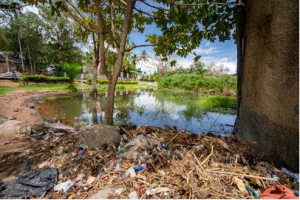
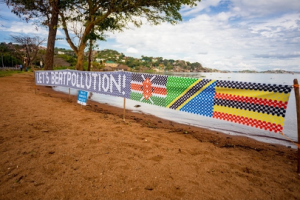
Propositions from EAC youth parliament: banning single-use plastics;
Maliha Sumar member of the East African Youth Parliament representing Tanzania and climate change activist has been actively advocating to push for member states to adopt legislation to ban the use of single-use plastics in the East African Community
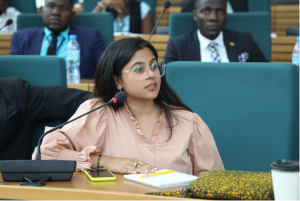
‘Since 2005, global exports of plastics have more than doubled in value reaching a record of $1.2 trillion and although we’re more aware of the plastic problem and its dangers, we are not doing nearly enough to tackle this crisis. In fact, plastics are thriving in our global economy. And in some cases, for example, the initiation of the East African Crude Oil Pipeline, we are doing the opposite of what is needed for us to transition into a sustainable, circular economy. It has never been more important to take URGENT action – after all, it is and will be young people who are affected the most. Our shared resources, like Lake Victoria, are dying as a result of pollution and it might be getting too late if we don’t take collective action now. 15,000 people have already called for legislative change. My plea to our legislators is: please listen and take action’
Maliha Sumar, Tanzanian representative to the EAC Youth Parliament
Today, over 2/3 of UN member states have conveyed a willingness to think about a new global treaty to address marine plastic pollution, while more than 1/4 of member states have directly called for a treaty.
Our plea is this: the time is now for further affirmative action to be taken by East African policymakers in order to preserve the health of our people, environment, and our economy.
Going beyond: The 5th East African Youth Parliament 2022 speaks up
Plastic pollution is a critical issue, and its links to climate change are well documented. The stark reality of climate change affecting member states in the EAC requires urgent harmonized action. In Tanzania, extreme droughts have resulted in national water and electricity rationing as well as food and water shortages across the region, with some communities having to walk over 15km to fetch water. In Kenya, animals are dying like never seen before and the complete loss of vegetation on pasture lands is leading to extreme desertification forcing indigenous communities away from their homes. We have seen unprecedented rising temperatures across major cities including Nairobi and Dar es Salaam, to flooding, extreme droughts, famine, melting glaciers on Mt Kilimanjaro, and, in spite of being some of the lowest emitters in the world, East African member states are amongst the most vulnerable to the impacts of climate change.
This is why it’s of high importance that our governments take serious, synchronized and timely action to address climate change in our region with the following propositions from youth members of parliament;
- Assign an East African Youth Envoy on Climate Change as a focal point for advocacy and implementation of our agenda
- Ban imports on all plastic waste coming in from outside the region
- Adopt harmonized legislation across the East African region to effectively tackle illegal plastic trade across the border and pollution across our borders through a legislative ban on specific, unnecessary single-use plastic items including straws, bags, microbeads and more
- Allocate funds within each member states national budget to address damage, adaptation and mitigation efforts
- Lobby the world’s largest polluters and emitters to reduce their footprint
- Transition into renewable sources of energy and a circular economy
- Foster a friendly environment through tax exemptions and more for start-ups, industries and innovators who are embracing reusable, biodegradable and compostable plastic substitute
- These propositions and more have been taken to lawmakers at the East African Legislative Assembly to take forward through a petition presented to the speaker’s office at the East African Legislative Assembly.
Call to Action
Young people of East Africa have come up with ways to make a call to action using advocacy tools such as petitions to make their voices heard about the end of the single use plastics.
Petitions such as #plasticrevolution using reuse innovation, education through activism and advocating for a regional ban on single-use plastics. The petition has reached 15,000 signatures calling on our leaders to take action and ban unnecessary single-use plastics across East Africa.
Sign the petition here:End Single use plastics in East Africa
We call on our leaders now, to hear our pleas, and unite for change
Written by Maliha Sumar with assistance from Advocacy office
